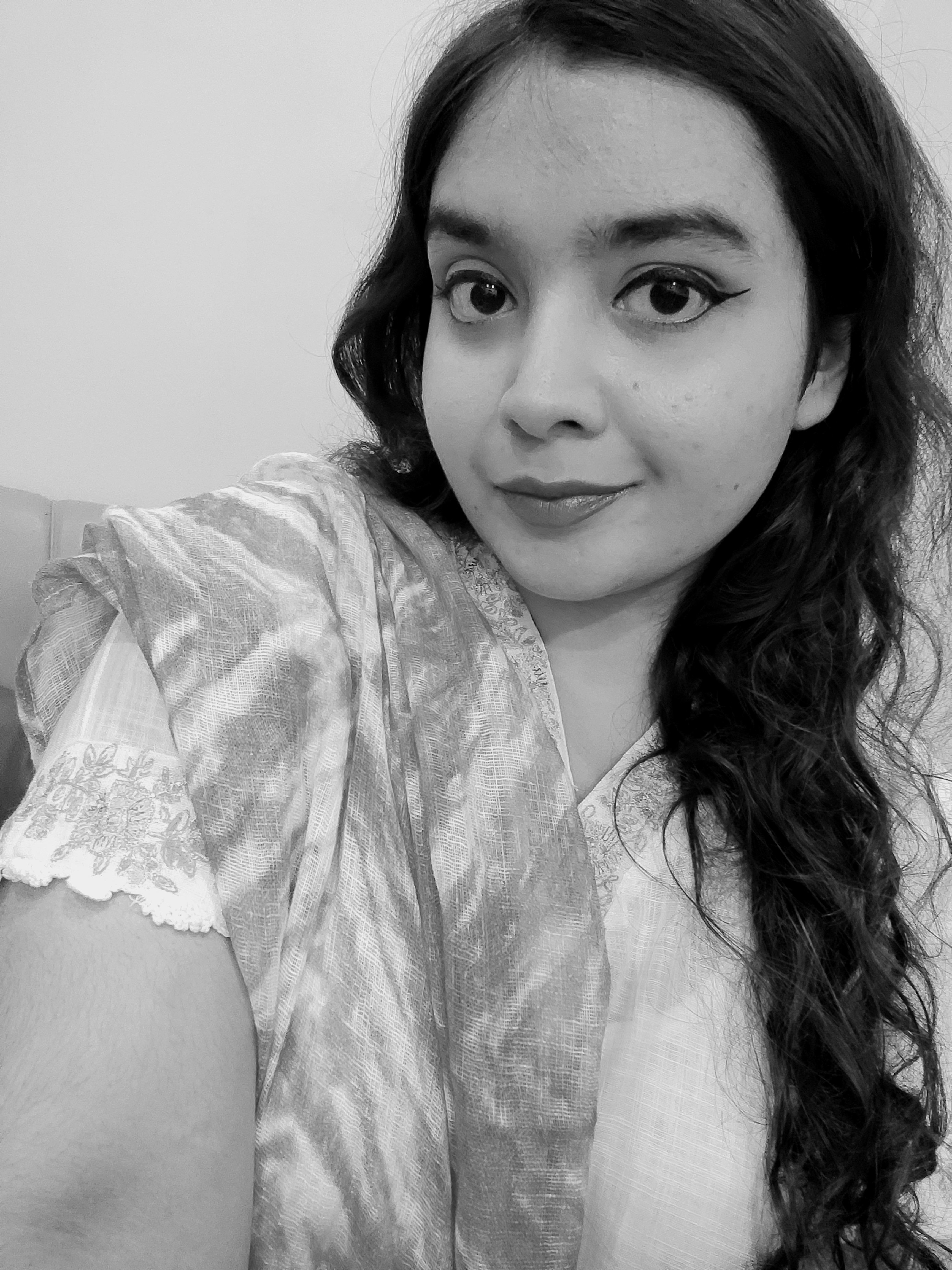ISSN: 1941-4137
POETRY THAT ENACTS THE ARTISTIC AND CREATIVE PURITY OF GLASS
POETRY THAT ENACTS THE ARTISTIC AND CREATIVE PURITY OF GLASS

Ammara Younas, a poet from Pakistan, has work published & forthcoming in Rattle, ONLY POEMS, Glass, Tahoma Literary Review, The Shore, The Marrow Poetry, Subtext Literary Magazine, Gabby & Min's Literary Review, The Imagist, Small World City, Lakeer, and Resonance. She is currently serving as a guest editor at Subtext Literary Magazine.
Also by Ammara Younas:
self-portrait as god holding the dead in his palms
Song of a Masjid’s Floor
a paleontologist discovers my father’s fossil
January 29, 2025
a bottle of gin pretends consciousness inside many mouths
I remember the mouth an empty wretch
and then an ecstasy unbridled horizon racing
beneath Archangels' abandoned horses
remember the mountain poets of Spring cup the notoriety
as they mouthed Allah Allah Allah
their sisters mothers lovers disappeared inside their mouths
and for once their voice was softer than the verses
they spun in the pigmented God's Hollow
I remember a kiss as it was wedding as it was prayer
as it was sin forking a high tide parting seas like Moses
I burnished that tongue myself
I undressed the layers it collected when it crouched unmoving
for years
like a sedimentary rock
I remember God as a foetus God as a bodach
God as a lonesome dove paralysed, wearing the I
wearing the worrisome We alone
& as he softened me with his tongue he slept and dreamed
that he told Nietzsche he'd be dying very soon
I fear the dimensions
string tears for the dimensions
grieve with the dimensions leaking through God's very eyes
he touched me after he painted a joyride colours unbecoming
& when he sloshed out buckets of new languages
they carried ersatz silhouettes & replica nouns
& when he was nowhere to be found again
I was sure his dream wasn't a dream
(if God were here, would we need language?)
I held a special feast and kissed everyone
so long, solipsism
the drops of me that flushed through God's frozen belly
dreamed of him asking
mother, finally, I've become myself
mother, am I even recognisable anymore?
I wondered what it would be like if alcohol had consciousness. Perhaps it would archive ecstasy, fear, desire, and memory in every mouth it touches. It would become not just a witness, but also a participant in a spectrum of experiences. It would loosen the sedimented layers of silence and restraint, awakening a tongue that had forgotten the language of intimacy. I wondered what it’d be like for God after creating all that he did; he might need a drink. I also wondered what it’d be like for him after he’d had a drink. I hoped to explore the liminal spaces between ecstasy and despair, intoxication and revelation, the individual and the divine. I think that in moments of excess, we may glimpse fragments of higher truths, but those truths are often distorted or fleeting, slipping away as the gin itself courses through the body and mind.
Glass: A Journal of Poetry is published weekly by Glass Poetry Press.
All contents © the author.
All contents © the author.





